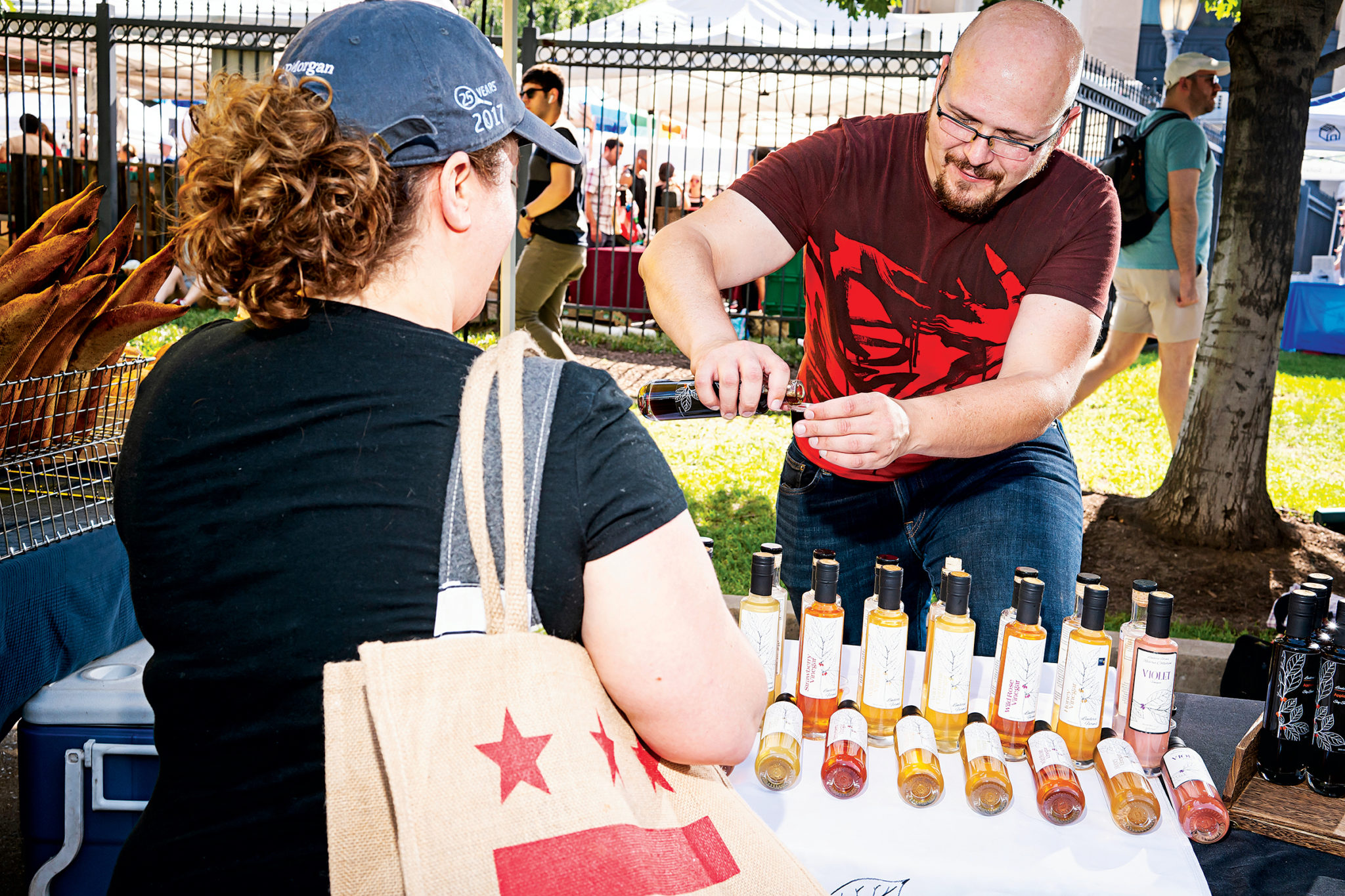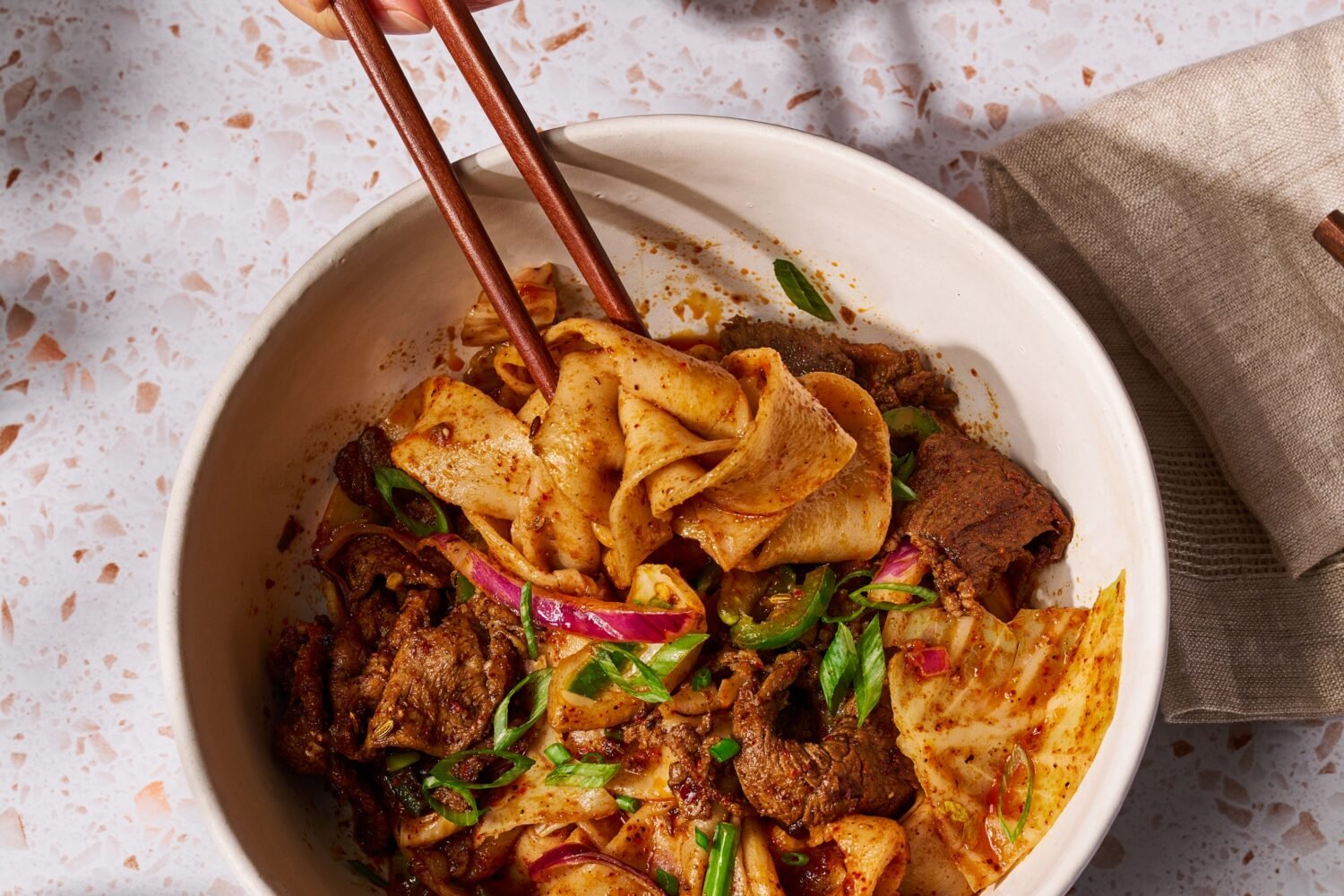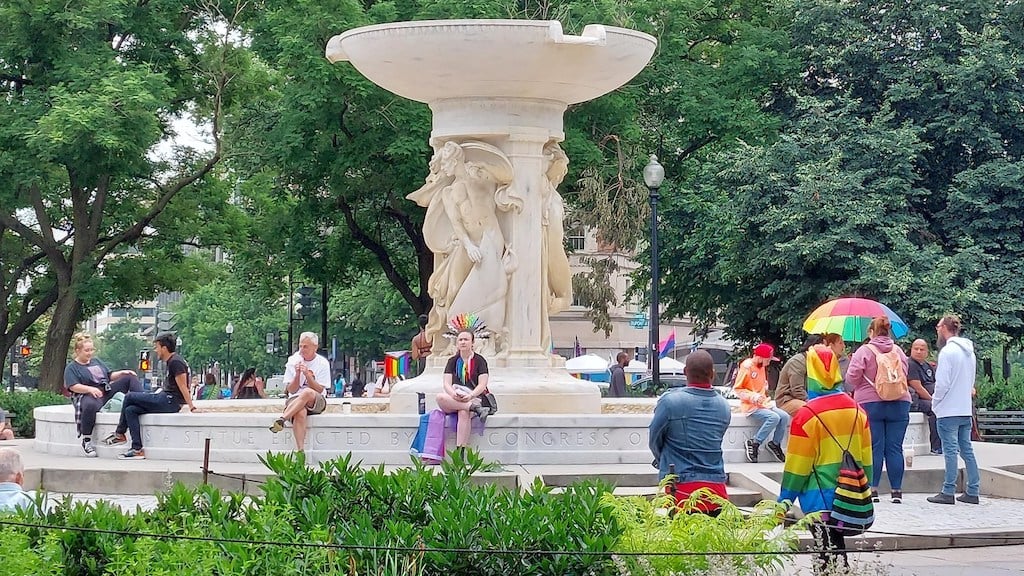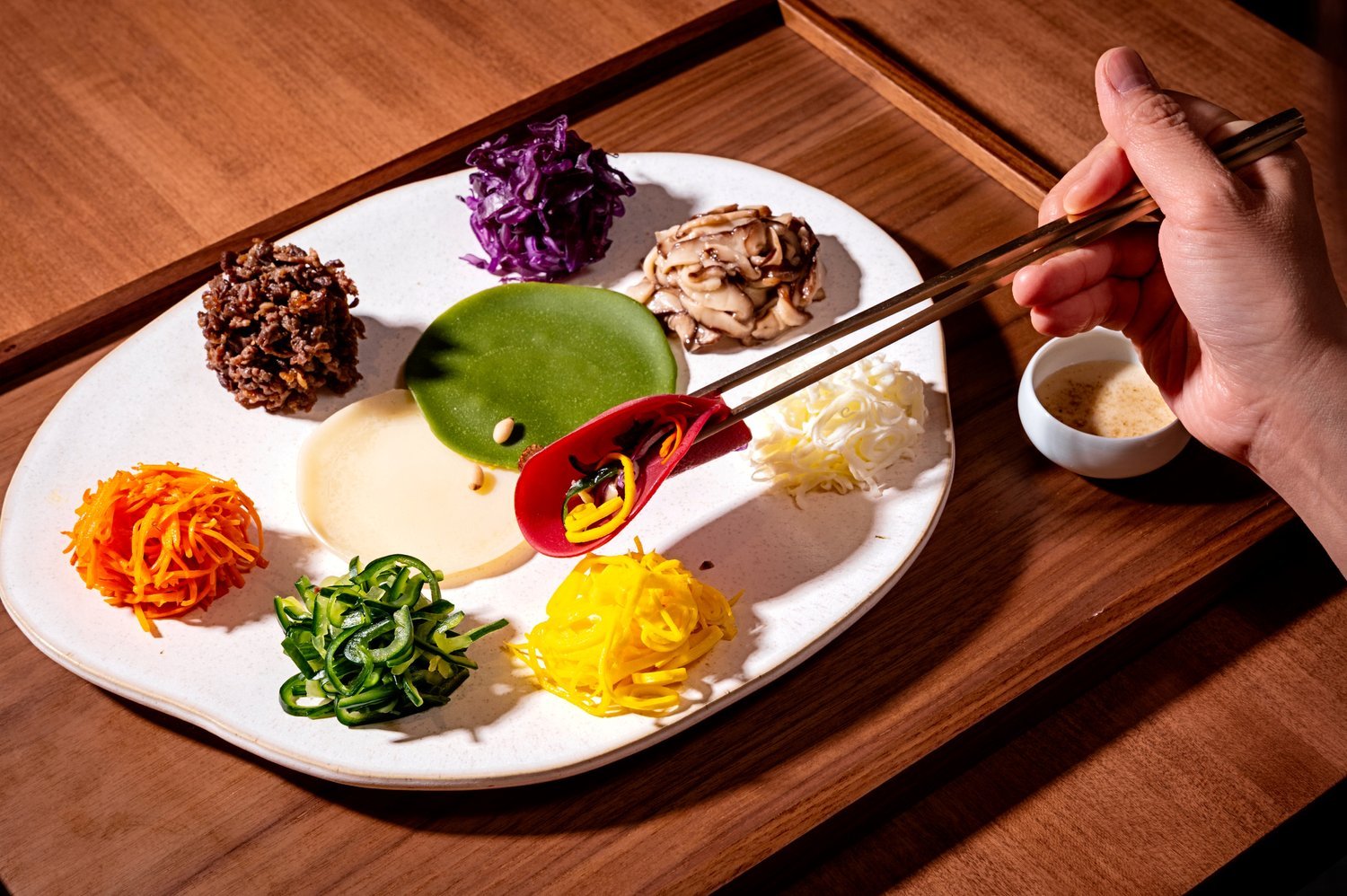Daniel Liberson has spent the past six years producing and selling vinegar. So why start making soy sauce? He’ll tell you the reason involves “self-hatred and a lot of drinking.” Beyond the technical challenges of balancing ingredients and a months-long fermentation process, there’s a bigger quandary: How does Lindera Farms, his one-man operation in Virginia, compete with Asian producers who have been perfecting their craft over centuries?
The answer, for Liberson, is not even to try replicating a recipe or flavor but to create his own distinct take on soy. It’s the same reason he sells black-locust and paw-paw vinegars but not a classic balsamic.
“There’s something to be said for a balsamic from Modena, where it’s been aged for 15 years and the house has been doing it since the collapse of Rome,” Liberson says. “I’m an awkward gay Jew in Delaplane [Virginia]. I’m not going to compete with that story. In that same vein, I’m not going to be able to compete with Japan.”
Liberson, though, isn’t tied to tradition. He finishes his soy sauce on smoked applewood and has experimented with both charred leeks and grilled crabapples (though neither made the final cut). He also embraces local products, including non-GMO black soybeans and rye berries from Next Step Produce in Maryland as well as salt from J.Q. Dickinson Salt-Works in West Virginia.
The result is a smoky, meaty sauce that Liberson suggests using in a vinaigrette marinade for grilled meats rather than as a dipping sauce for sushi, which it may overpower. Want to try it? He sells $20 bottles at farmers markets in Dupont Circle, Silver Spring, Fairfax, and Bethesda (Westfield Montgomery) as well as online.
This article appears in the September 2019 issue of Washingtonian.
















